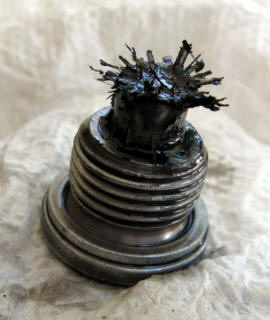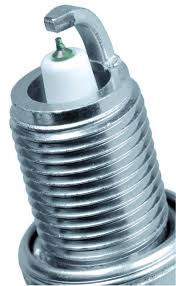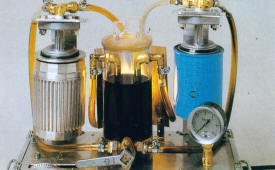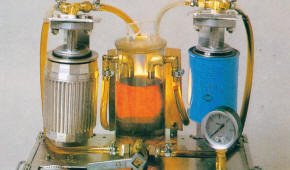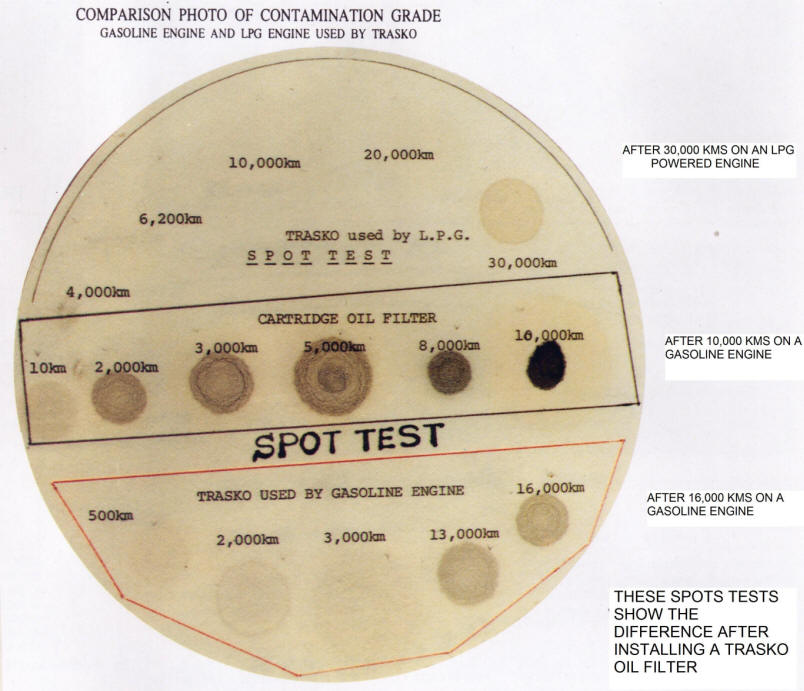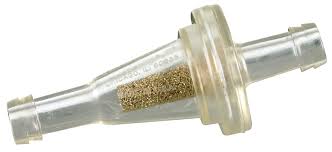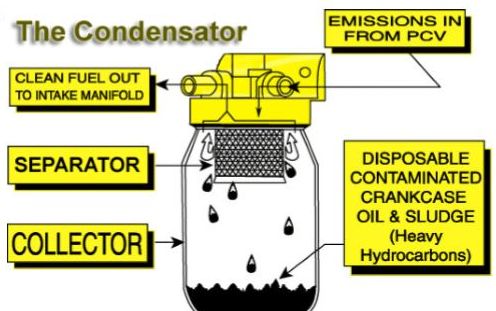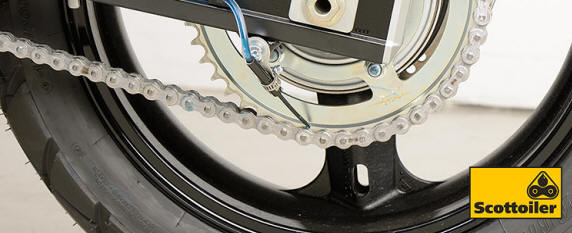
|
Links Engine enhancing products Xcelplus Engine Treatment Single application super lubrication http://www.facebook.com/xcelplus1
Oil Analysis Measure exactly how much wear is reduced in your engine or machinery. A reduction in wear is the best way to measure the effectiveness of a product. Low wear is an excellent indicator of improved mileage/power, reduced temperature/noise/vibration and other benefits: Techenomics http://www.techenomics.net FluidRx Diagnostics: Spot testing is a cheap test that can be done at home to measure oil quality. https://www.youtube.com/watch?time_continue=33&v=2-gbv6dK-K4
Magnetic Sump plugs Magnetic sump plugs are almost as good as an oil analysis: The better the lubrication/oil the fewer metal particles collect on the sump plug.
Normal Oil filters only remove particles >40 microns in size. The SAE (Society of Automotive Engineers says that:
Iron (Fe) is typically the largest source of metal in the oil. If you remove iron from circulation you have removed the major source of metal in the oil. N.B. Xcelplus stops metal particles from forming which is even better than removing them after they are formed. Do a visual inspection before and after treatment: Reductions in wear of >50 % are normal so it should be easy to spot the difference?
Foam Air Filters (Unifilter)
Unifilter http://www.uniflow.com.au Unifilter air filters performed better than all other filters tested (including foam) e.g. Unifilter filter oil remained distributed throughout the filter no matter how long we left the filter in and didn't turn to grease after prolonged use. UniFilter also removed significantly more dirt than some other foam filters e.g. Pipercross Foam filters compared to paper and gauze: http://au.youtube.com/watch?v=4r8NajjYkFA
Spark Plugs (Iridium)
N.B. Conventional plugs need replacement every 10,000 ~ 40,000 km Xcelplus improves spark plug lifespan by improving combustion efficiency (preventing fouling).
Spark Plug (Torque Master)
Xcelplus helps spark plugs burn fuel more efficiently by reducing HC levels
Comparison a) Trasko: LPG engine (30,000 km) b) Normal oil filter: Gasoline engine (10,000 km) c) Trasko: Gasoline engine (16,000 km) Trasko http://www.trasko-usa.com The SAE (Society of Automotive Engineers says that:
*Standard oil filters filter particles down to ~40 microns N.B. Preventing wear is preferable to removing wear particles after they are formed . Xcelplus prevents wear in your engine even if ingested particles (aka dirt) increase.
Bypass oil filters
Jackmaster (Australia): http://www.jackmasteroilfilters.com.au/ Amsoil: https://oil-synthetic.com/2019/02/06/a-closer-look-at-by-pass-oil-filtration/ N.B. Xcelplus is not filtered out by bypass oil filters
Centrifugal oil filters
https://www.iowgroup.com/bypass-centrifugal-filter-trucking N.B. Xcelplus is synergistic with any centrifugal system: Less wear = Less work for your filter
Petrol filters (sintered metal)
N.B. Xcelplus can stop damage from occurring after ingestion of foreign particles but it is much preferable to prevent the problem if possible.
Catch Cans
Catch Cans (CC's) are attached between the crankcase breather (Positive Crankcase Ventilation valve: PCV) and air intake: Gases from the crankcase are burned to reduce emissions. The more an engine pressurises the crankcase the greater the benefit from a CC. Direct (DI) injection, turbo, supercharger, performance, diesel engines and engines with high compression all increase crankcase pressure. Catch Cans (CC's) benefit:
N.B. Xcelplus reduces wear, helps the rings seal more effectively, reduces Hydro Carbon (HC) emissions, carbon build up and cleans the engine. This all reduces blow by and reduces the need for a CC.
Fuel Catalyst
Xcelplus improves combustion efficiency complementing the effect of a fuel catalyst.
Chain Oiler
Scottoilers are particularly robust and relatively easy to install. What destroys your chain and sprockets is a lack of lubrication N.B. Xcelplus is the only lubricant that is there 100 % of the time. Xcelplus added to your chain oil (via your chain oiler) is roughly twice as effective as a chain oiler alone: Check out the testimonial in which a 520 o-ring chain on an XT600 lasted 57,777 km (~5x longer than normal) after Xcelplus treatment. Once Xcelplus coats the
pin the chain and sprocket noise noticeably decreases. Fuel A cleaner fuel system improves combustion efficiency and improved combustion efficiency makes the engine cleaner. In Xcelplus testing Shell fuels consistently improved fuel economy by ~5 % and deposits in the fuel system were visibly reduced. Xcelplus Engine and Combustion Chamber Treatment assist the cleaning process by preventing deposits from sticking to the engine and reducing emissions. High octane fuels can improve economy on some vehicles but on most vehicles it makes no difference. N.B. E10 (10 % ethanol) fuels
are less energy dense (27 MJ/kg or 23.5 MJ/L) than petrol (46 MJ/kg or 33.5 MJ/L)
and result in a ~6 % reduction in fuel economy. Additionally, ethanol breaks
down into aldehydes (acetaldehyde mainly) which polymerise and form sticky deposits in the engine.
These sticky deposits gum up rings which causes fuel dilution of the oil
(reduced lubrication). Xcelplus will protect your engine against this loss of
lubrication. Oil There are 3 main types of oil: A full synthetic oil lubricates better, causes less wear, is usually lighter but is more expensive than a mineral oil. A semi-synthetic is almost as good as a full synthetic but is almost as cheap as a mineral oil. N.B. The lighter the oil the better the fuel economy. The best oil for your engine is the one that results in the least wear! Xcelplus is synergistic with the oil i.e. A good oil will last even longer with XcelPlus in the engine and will result in less wear.
Do you realise that each time you use Xcelplus you reduce CO2 (~6.4 Tonnes refer Cost Benefit Analysis) and other emissions (HC, CO, SO2 & NOx)? Want to reduce your carbon footprint even further? Click to join UCapture: |
